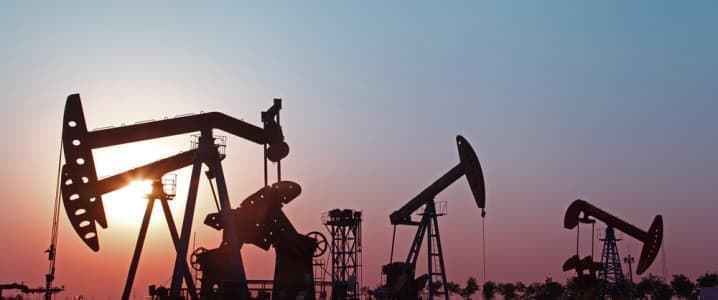Recent oil and gas discoveries in the Democratic Republic of Congo (DRC) mean that the country has the second largest crude oil reserves in Central and Southern Africa, after Angola. Several international oil majors have been eyeing Africa for the development of new operations in a largely untapped region. New oil and gas projects in the DRC could provide energy companies with massive new reserves and allow them to develop lower-carbon operations. However, there is widespread opposition in the country, as environmentalists worry about the ecological impact of drilling, and residents are concerned about the effect on the community, as well as the potential for corruption.
The DRC’s proven oil reserves of 180 million barrels are mainly located in the four major lakes bordering Tanzania, Burundi, Rwanda, and Uganda. Its reserves are thought to include a total of around 30 billion cubic metres of methane and natural gas. In Lake Kivu, bordering Rwanda and Burundi, there are also almost 60 billion cubic metres of dissolved methane in the waters. The DRC currently exports all its crude production and imports all its petroleum products, something that could change to boost the country’s energy security if its oil and gas industry is developed further.
Three major oil companies currently operate oil projects in the region, the Anglo-French firm Perenco, French oil major Total, and state-owned SONAHYDROC. There has been great optimism around oil discoveries in the region in recent years, with estimates for petroleum reserves as high as three billion barrels. Therefore, further exploration could prove fruitful for companies looking to break into Africa.
However, many are worried about the potential environmental and social impacts of developing the DRC’s oil reserves. Earlier this year, the New York investment firm EQX Biome, a biodiversity fintech company, made a bid of $400 million in an auction for oil concessions in the Congo basin rainforest and Virunga National Park with the idea of converting them into conservation projects. It signalled its interest in 27 oil exploration blocks put up for auction in July last year to the DRC government. The region includes a critically endangered gorilla habitat, as well as parts of the world’s largest tropical peatlands, and some of the world’s second-largest rainforest in the Congo basin. Environmentalists worldwide have warned of irreversible environmental harm should drilling go ahead in the region.
Three gas blocks in the region have already been sold in the auction to North American oil companies. But EQX Biome hopes to develop a carbon and biodiversity credits programme in the remaining blocks, partnering with NGOs to help companies buy credits to offset their carbon emissions. The firm believes the projects could bring in revenues of at least $6 billion, as well as create jobs and provide tax revenues for the DRC government, meaning it would not lose out from the lack of oil production. It would also support the DRC in meeting international climate change goals. The hydrocarbons minister Didier Budimbu postponed the end of the auction until October in a move that suggested the government was considering the offer.
Yet, in October, the DRC government rejected calls from U.S. climate envoy John Kerry to withdraw some oil blocks from its auction to protect forests in the region. The country’s Environment Minister Eve Bazaiba responded to the request by stating, “Nobody can put pressure on us... no convention in the world, not even the Paris Agreement, forbids a country from emitting CO2 for development reasons.” The DRC government has been steadfast in its position on oil exploration, suggesting it needs companies to invest in the country’s oil and gas industry to help it develop its economy, power industries, and provide electricity to its population. Bazaiba suggested that the potential impact of drilling on the environment would be assessed before any blocks were auctioned.
However, several communities across the DRC are staunchly opposed to the potential development of the country’s oil and gas reserves. While the first contract for gas extraction in Lake Kivu was signed in September, the auction deadline for bids on oil blocks has been postponed until next year. The DRC government has promised that the auction will be transparent, impartial, and competitive. Yet, many Congolese do not care how transparent the process is, they simply do not want oil drilling on their land. Many communities living in the oil region depend on the rainforest for their livelihoods, and environmental degradation could put them at risk. In addition to drilling, the development of oil operations would require a huge investment in supporting infrastructure, such as roads and pipelines, which could have a detrimental impact on the rainforest.
While there is significant potential for the development of the DRC’s oil and gas reserves, international and local pressure from environmentalists and communities in the region could encourage the government to halt the auction of several blocks in the region. So far, the government has been adamant about the need to develop its oil and gas industry to help support economic and industrial growth. However, some companies believe that revenues from the creation of a carbon credit programme could bring in funds without putting the rainforest at risk. Once again, the issue of aggravating climate change versus the economic growth of a developing country comes into play, suggesting the need for a global approach if Western governments and international organisations support a green transition.
By Felicity Bradstock for Oilprice.com
More Top Reads From Oilprice.com:
- European Natural Gas Prices Seesaw as Cold Snap Arrives
- Global Refining Industry Braces for Tough 2024
- How Do Major Economies Stack Up in Credit Ratings?


















